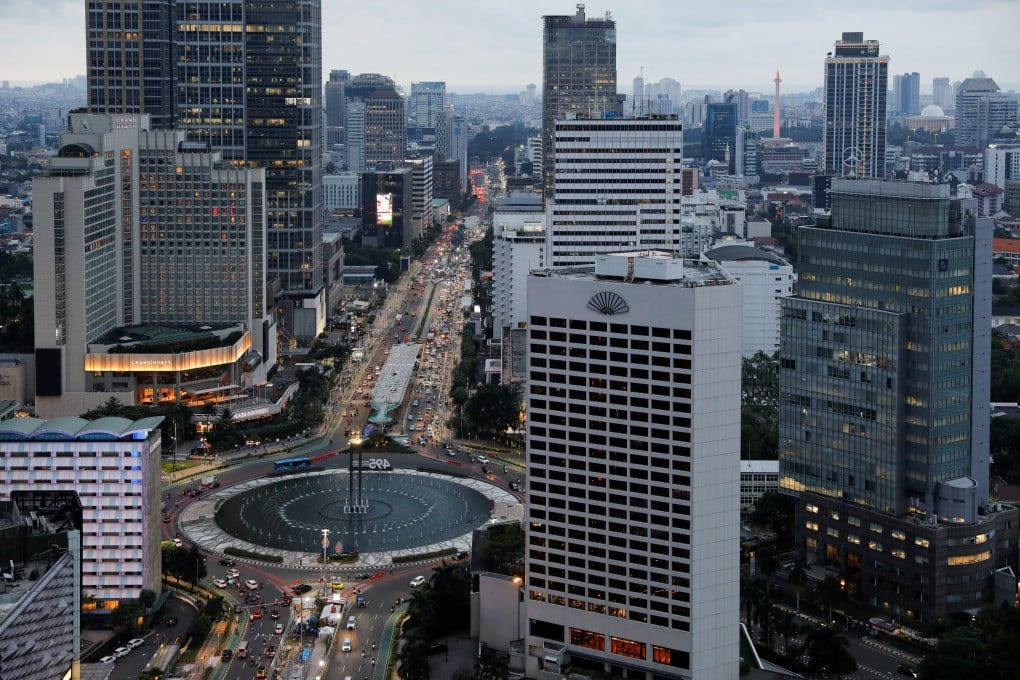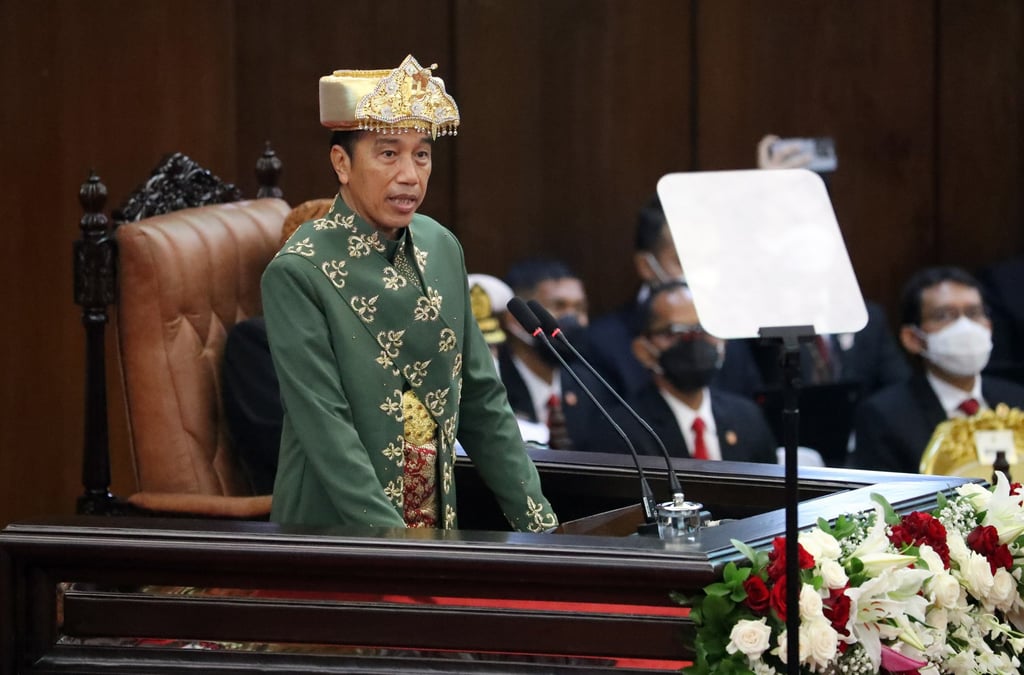‘Too low’: Indonesia’s call for optimism doesn’t match 5.3pc growth target, analysts say
- President Joko Widodo unveils five priorities for 2023, touts 5.44 per cent growth in second quarter of 2022 and 27-month trade surplus run
- Call to remain vigilant amid geopolitical uncertainties could mean a ‘more realistic growth target’ even as economy on track for stronger recovery next year

During his annual State Budget address on Tuesday, Widodo laid out five economic priorities for next year.
A majority of the state expenses would be dedicated to education, healthcare and social protection, while infrastructure costs would only amount to 392 trillion rupiah (US$26.5 billion), underlining Widodo’s shifting budgetary priority in his last full year as leader. The biggest budget allocation, some 811 trillion rupiah (US$54.9 billion), will be distributed to the country’s 37 provinces.

Widodo also touted the trillion-dollar economy’s achievements this year, such as its 5.44 per cent economic growth in the second quarter and the trade surplus it has recorded for 27 consecutive months. Inflation, at 4.9 per cent year-on-year, is still deemed under control, due to a whopping 502 trillion rupiah (US$34 billion) in energy subsidies and other measures.
But Eko Listyanto, deputy director at Jakarta-based Institute for Development of Economics and Finance, said Widodo’s call to be optimistic next year was not reflected in his “moderate” growth target of 5.3 per cent.
“It’s not optimistic enough. Our growth target this year is set at 5.2 per cent, so the 5.3 per cent target next year, in Jokowi’s last full year as a president, is too low,” Eko said, referring to Widodo’s popular nickname.
“Jokowi also called for us to be more vigilant, due to the threat of global food crisis and other risks, so I think that’s why he had to set a more realistic growth target.”